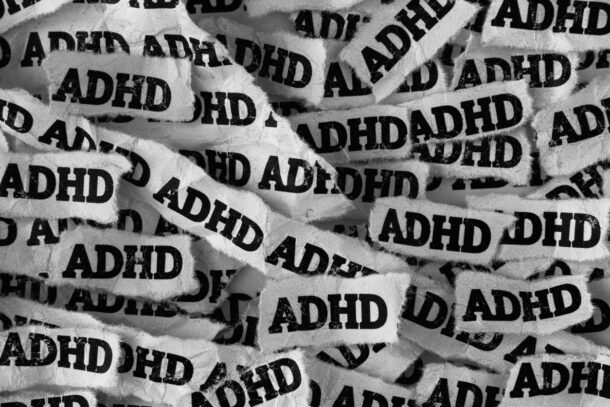
Why ‘ADHD’ is a Misleading Label
In our view, the term “ADHD” – Attention Deficit Hyperactivity Disorder – is misleading.
Let’s break it down.
There is no ‘deficit’ of attention.
People with ADHD don’t lack attention. They often have too much of it. The real challenge is regulating it: directing attention deliberately, shifting it appropriately, and sustaining it when it matters.
A client once described it perfectly to one of us:
“My attention isn’t missing – it’s just not under my control. It’s like trying to drink from a fire hose!”
This captures something essential. ADHD is not a problem of too little attention. It’s a problem of attention dysregulation – an inability to consistently manage one’s focus based on goals, context, or priorities of others.
Hyperactivity and impulsivity aren’t always visible.
The label also over-emphasises physical hyperactivity – a stereotype rooted in childhood behaviour. Many adults with ADHD don’t bounce off the walls. Instead, they experience internal restlessness, mental overdrive, rapid shifts in thought, emotional intensity, and an inability to slow down or switch off.
It’s not a disorder of attention – it’s a disorder of regulation.
What links the core challenges of ADHD – distractibility, procrastination, overwhelm, disorganisation, time-blindness, poor emotional control – is dysregulation.
This includes:
- Attention dysregulation – difficulty choosing what to focus on and when.
- Emotional dysregulation – heightened sensitivity, reactivity, and difficulty returning to a baseline state, as well as a massive fear of rejection.
- Motivational dysregulation – reliance on interest, novelty, urgency or rewards to get things started.
- Energy and arousal dysregulation – inconsistent stamina, sleep issues, and burnout cycles: one day setting the world alight and the next day being in a slump.
From a neuroscience perspective, this more accurately reflects impairments in executive functioning – the brain’s management system – rather than any literal attention deficit.
So, what should we call ADHD?
Some experts suggest more precise names, like Executive Function Dysregulation Disorder or Self-Regulation Deficit Disorder.
Why this matters – especially in the workplace.
When leaders and line managers misunderstand ADHD as simply a ‘lack of attention’, they may:
- Underestimate the complexity of the condition
- Overlook the internal struggles that a person with ADHD often masks
- Offer interventions that don’t work (like ‘just try harder’ or ‘use a planner’)
We believe that reframing ADHD as a regulation disorder shifts the focus towards creating supportive environments, adaptive strategies, and self-awareness, rather than emphasising a perceived deficit.
Labels matter. They shape perception, policy, and self-identity. “ADHD” is a historical label – a legacy term. I feel that as our understanding of the condition evolves, so too must our language; after all, this is accepted in other fields of social justice.

Start The Discussion